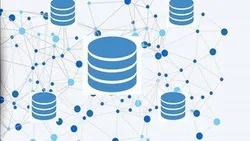
MongoDB + Python #2 - Schema Validation Advanced Queries and More 
This course provides an in-depth look at MongoDB and Python, covering topics such as schema validation, bulk insert, data modeling, advanced queries, and PyMongo Arrow Demo. Participants will gain a better understanding of how to use MongoDB and Python to create efficient and secure databases. They will also learn how to use advanced queries to retrieve data and how to use PyMongo Arrow Demo to create powerful applications. ▼
ADVERTISEMENT
Course Feature
![]() Cost:
Cost:
Free
![]() Provider:
Provider:
Youtube
![]() Certificate:
Certificate:
Paid Certification
![]() Language:
Language:
English
![]() Start Date:
Start Date:
On-Demand
Course Overview
❗The content presented here is sourced directly from Youtube platform. For comprehensive course details, including enrollment information, simply click on the 'Go to class' link on our website.
Updated in [February 21st, 2023]
This course provides an in-depth look at MongoDB and Python. It begins with an introduction to MongoDB and Python, followed by a discussion of schema validation. Students will then learn how to use bulk insert and data modeling to create efficient databases. Advanced queries and PyMongo Arrow Demo will also be covered. By the end of the course, students will have a comprehensive understanding of MongoDB and Python and be able to use them to create efficient databases.
[Applications]
After taking this course, students should be able to apply their knowledge of MongoDB and Python to create and validate schemas, perform bulk inserts, model data, and execute advanced queries. Additionally, students should be able to use PyMongo and Arrow to create a demo application.
[Career Paths]
1. MongoDB Developer: MongoDB Developers are responsible for designing, developing, and maintaining MongoDB databases. They must have a strong understanding of MongoDB’s features and capabilities, as well as the ability to write complex queries and optimize performance. Developing trends for MongoDB Developers include the use of automation tools to streamline database management and the use of cloud-based solutions to increase scalability.
2. Data Scientist: Data Scientists use MongoDB to store and analyze large datasets. They must have a strong understanding of MongoDB’s features and capabilities, as well as the ability to write complex queries and optimize performance. Developing trends for Data Scientists include the use of machine learning algorithms to automate data analysis and the use of cloud-based solutions to increase scalability.
3. Python Developer: Python Developers use MongoDB and Python to develop web applications. They must have a strong understanding of MongoDB’s features and capabilities, as well as the ability to write complex queries and optimize performance. Developing trends for Python Developers include the use of frameworks such as Django and Flask to streamline development and the use of cloud-based solutions to increase scalability.
4. DevOps Engineer: DevOps Engineers use MongoDB and Python to automate the deployment and management of applications. They must have a strong understanding of MongoDB’s features and capabilities, as well as the ability to write complex queries and optimize performance. Developing trends for DevOps Engineers include the use of automation tools to streamline deployment and the use of cloud-based solutions to increase scalability.
[Education Paths]
1. Bachelor of Science in Computer Science: This degree path provides students with a comprehensive understanding of computer science fundamentals, including programming languages, software engineering, computer architecture, and operating systems. Additionally, students will learn about the latest trends in computer science, such as artificial intelligence, machine learning, and data science. This degree path is ideal for those looking to pursue a career in software engineering, data science, or computer systems engineering.
2. Bachelor of Science in Data Science: This degree path focuses on the application of data science principles to solve real-world problems. Students will learn about data mining, machine learning, and artificial intelligence, as well as the fundamentals of programming and database management. Additionally, students will gain an understanding of the ethical implications of data science and the importance of data privacy. This degree path is ideal for those looking to pursue a career in data science, analytics, or machine learning.
3. Master of Science in Artificial Intelligence: This degree path provides students with an in-depth understanding of artificial intelligence principles and techniques. Students will learn about machine learning, natural language processing, computer vision, and robotics. Additionally, students will gain an understanding of the ethical implications of artificial intelligence and the importance of data privacy. This degree path is ideal for those looking to pursue a career in artificial intelligence, machine learning, or robotics.
4. Master of Science in Data Science: This degree path focuses on the application of data science principles to solve real-world problems. Students will learn about data mining, machine learning, and artificial intelligence, as well as the fundamentals of programming and database management. Additionally, students will gain an understanding of the ethical implications of data science and the importance of data privacy. This degree path is ideal for those looking to pursue a career in data science, analytics, or machine learning.
Course Provider

Provider Youtube's Stats at AZClass
Discussion and Reviews
0.0 (Based on 0 reviews)
Explore Similar Online Courses

The Ultimate Excel Tutorial - Beginner to Advanced - 5 Hours!

Flsun V400 Review: Big Running Kipper Is is fast with high quality?

Python for Informatics: Exploring Information

Social Network Analysis

Introduction to Systematic Review and Meta-Analysis

The Analytics Edge

DCO042 - Python For Informatics

Causal Diagrams: Draw Your Assumptions Before Your Conclusions

Whole genome sequencing of bacterial genomes - tools and applications

Searching for Text in MongoDB

Learning MongoDB - NoSQL database


Start your review of MongoDB + Python #2 - Schema Validation Advanced Queries and More